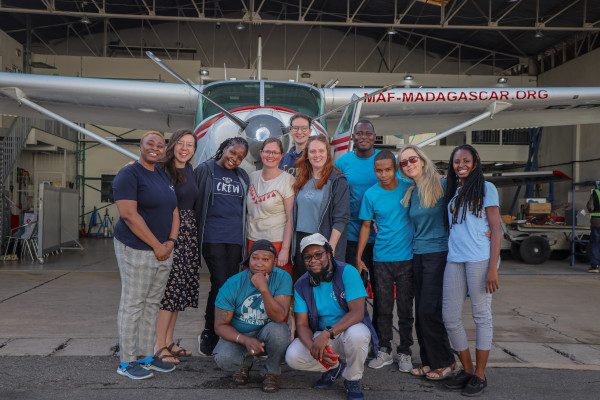Humanitarian aid organizations Mercy Ships and Mission Aviation Fellowship (MAF) have renewed their partnership to help bring life-changing surgical care to isolated communities across Africa.
Read Also: Saida Raheem: Boxing Star, Aspiring Fashion Designer With Olympic Dreams
Mercy Ships operates state-of-the-art hospital ships, providing free surgeries and healthcare services to sub-Saharan nations with limited access to safe surgical care. MAF’s purpose is to bring help, hope and healing through aviation to people living in isolation and poverty.
The renewed memorandum of agreement between these two faith-based charities enables Mercy Ships to extend their reach further inland to a broader spectrum of the population across Africa, bolstered by MAF’s logistical support. This partnership, launched in Madagascar, will enable teams to access hard-to-reach areas and transport patients in need of critical surgical interventions. This collaboration provides opportunities for those in the most remote and inaccessible regions of the country. Further joint initiatives are being explored in other African nations.
“Traveling by road in Madagascar can be incredibly challenging due to the rough terrain and poor infrastructure,” Michael Jurgensen, MAF Madagascar Country Director, said. “In many cases, reaching remote villages can take days by car, draining valuable time and energy. However, with MAF Madagascar’s support, the [Mercy Ships] patient selection team can cover vast distances swiftly and safely, enabling them to visit multiple locations within a short period. Flying not only saves time for the selection team, but also ensures the team can travel to evaluate and select patients from the most isolated and underserved areas for surgery on-ship at a later date.”
A 2016 study of Madagascar revealed that only 20% of the population can access surgical services within a two-hour timeframe, and up to 95% would face financial ruin if they required surgery (source: BMJ Global Health) (https://apo-opa.co/3zADKr6). With a scarcity of surgeons — approximately 1 for every 100,000 people — the prospect of receiving necessary surgical treatment seems unattainable for many (source: WHO) (https://apo-opa.co/3RXNmm0).
Bernard van den Bosch, who has worked for both MAF and Mercy Ships, and current Director of the Africa Services Center at Mercy Ships, expressed his enthusiasm: “We are confidently re-engaging with MAF because together we are stronger. The country of Madagascar has many hard-to-reach areas, and MAF is the key to accessing them. Non-profit organizations can ‘compete,’ but ultimately, we all serve the same goal. I see many opportunities for future collaboration and intensive joint efforts.”
Bastiaan de Waal, Africa Regional Director of MAF, added: “By transporting Mercy Ships teams with our aircraft to the interior of Madagascar, we provide help, hope and healing to residents with the surgical care they desperately need. The need is high in these areas, and these people in isolated communities are equally entitled to care. We are pleased to partner alongside Mercy Ships to support this often-forgotten group. Being each other’s hand and foot is what we are called to do and we have a shared synergy of vision and values.”
This renewed collaboration between MAF and Mercy Ships exemplifies how strategic partnerships can enhance humanitarian efforts, ensuring that more people receive the critical medical care they need. The two organizations previously partnered from 2014 to 2016 in Madagascar and have worked together in Liberia.
Mercy Ships’ hospital ship, the Africa Mercy®, has been docked in Toamasina since February and is delivering surgery and training. The ship is actively collaborating with Madagascar’s Ministry of Health to identify the most pressing needs and strengthen the country’s surgical systems through its education, training, and advocacy program.









